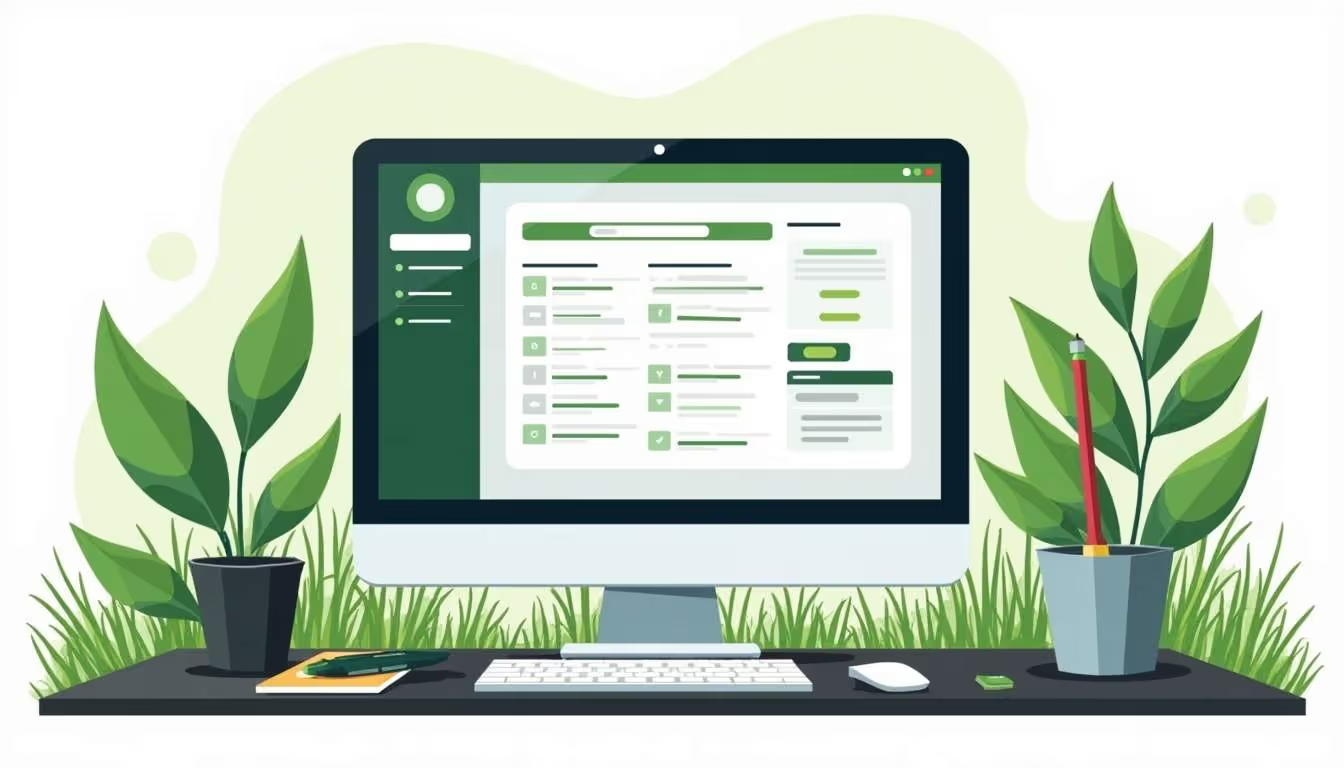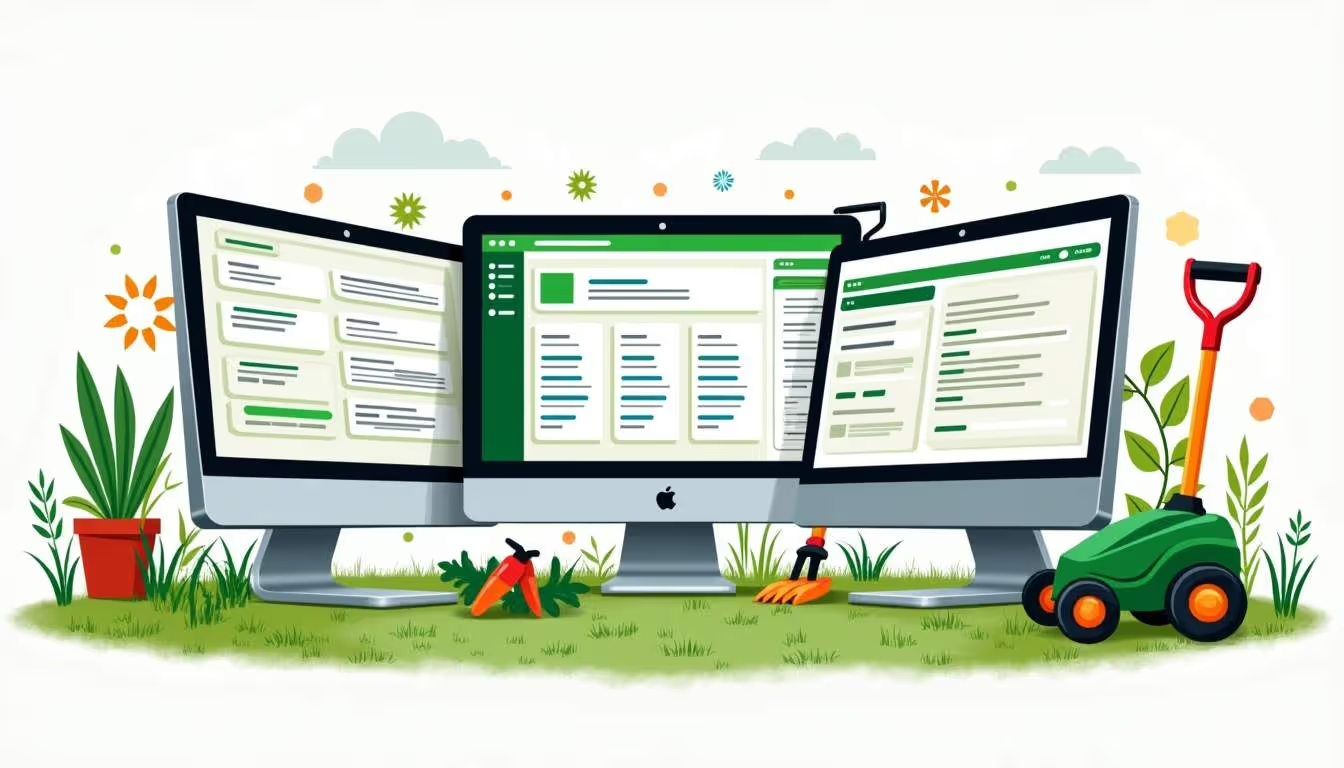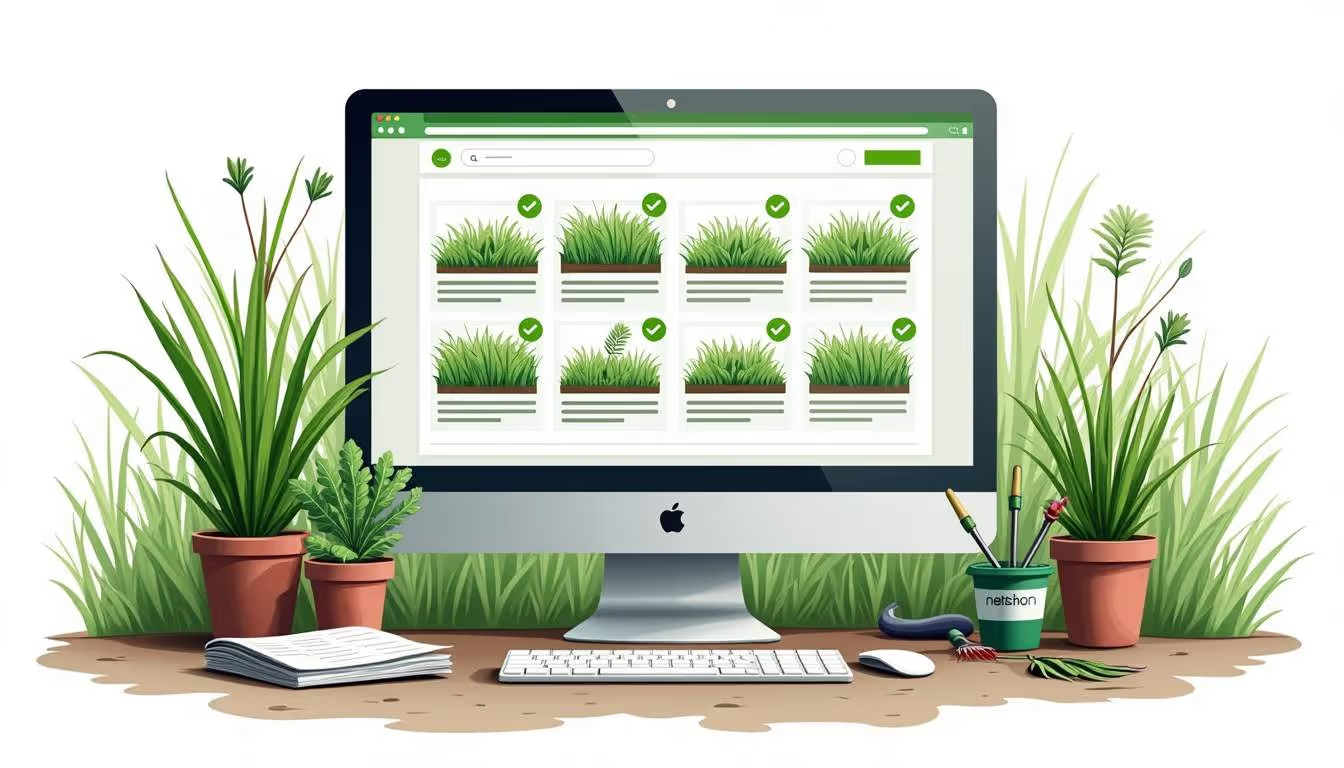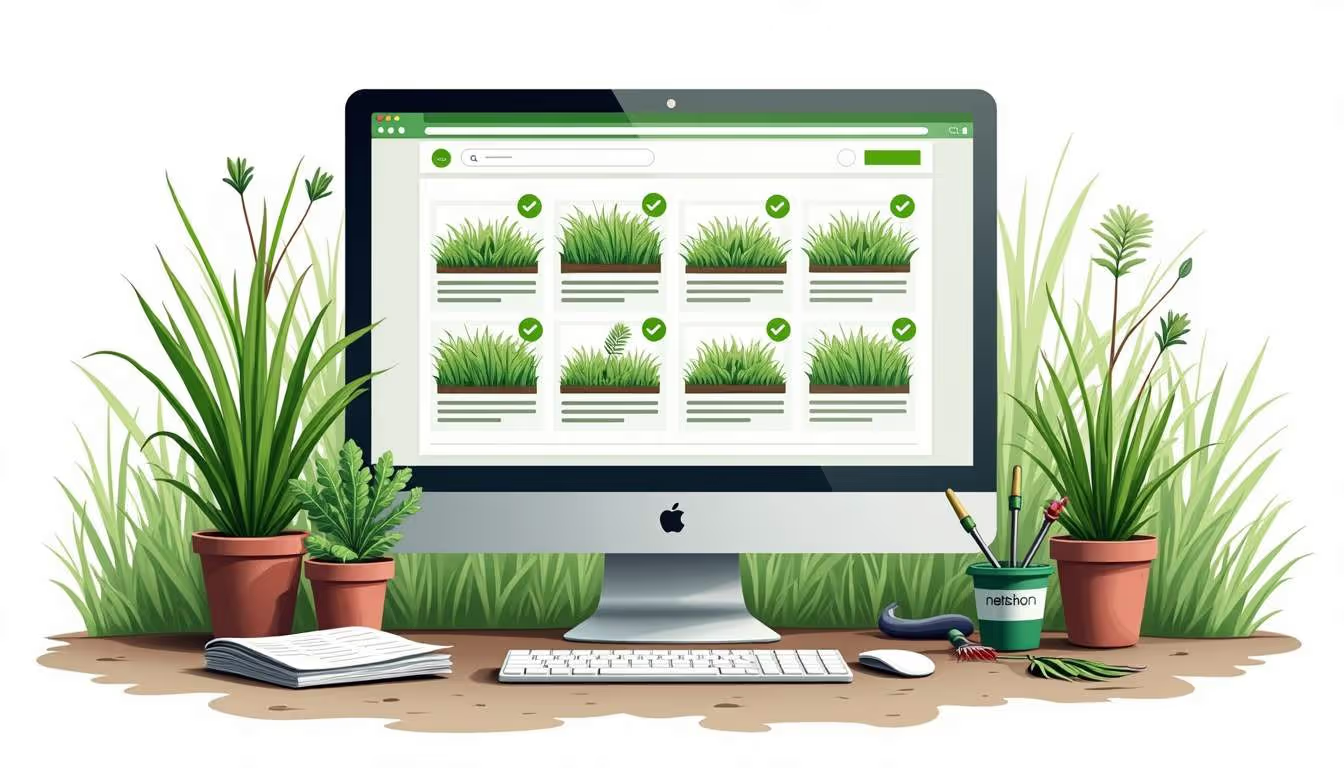Top 10 Lawn Care Software Solutions for Streamlining Your Business
In today’s competitive lawn care industry, efficiency and customer satisfaction are key to sustained growth. With the sector experiencing steady expansion—averaging about 6% annual revenue growth from 2018 to 2023—leveraging the right technology can make all the difference. Lawn care software solutions are transforming how service providers manage operations, schedule visits, and engage customers, helping businesses thrive in a market where the average household spends upwards of $500 annually on lawn care.
Whether you run a small local outfit or a growing lawn care franchise, adopting the right software can streamline your workflows, boost customer retention, and increase profitability. This guide highlights the top 10 lawn care software platforms designed to elevate your business management and service delivery.
Why Lawn Care Software Is Essential for Modern Businesses
The lawn care industry is evolving rapidly, with subscription-based services growing by 28% in 2022 alone. Customers increasingly expect convenience, timely service, and transparent communication. Managing these demands manually can be overwhelming, especially given the high maintenance frequency—households average 2.3 lawn care visits per week.

Software solutions help lawn care companies automate scheduling, route planning, invoicing, and customer relationship management. They also integrate with mobile apps, enabling field technicians to update job statuses in real time. This not only enhances operational efficiency but also improves customer experiences, which is crucial considering the industry’s strong 80% customer retention rate.
Moreover, the integration of advanced analytics within lawn care software allows businesses to gain valuable insights into their operations. By analyzing data trends, companies can identify peak service times, optimize their workforce allocation, and even predict customer needs based on seasonal changes. This predictive capability empowers lawn care providers to tailor their services more effectively, ensuring that they meet customer expectations while maximizing profitability.
Additionally, many lawn care software solutions offer features such as customer portals, where clients can manage their accounts, schedule services, and provide feedback directly. This level of engagement fosters a sense of community and loyalty among customers, as they feel more connected to the services they are receiving. With the rise of eco-conscious consumers, some software platforms also include tools for tracking sustainable practices, helping businesses to promote their environmentally friendly initiatives and attract a broader customer base.
Key Features to Look for in Lawn Care Software
Before diving into specific platforms, it’s important to understand the features that make lawn care software truly valuable:
- Scheduling & Dispatching: Automate appointment booking and optimize technician routes to reduce travel time and fuel costs.
- Customer Management: Maintain detailed customer profiles, track service history, and manage subscriptions effortlessly.
- Billing & Invoicing: Generate accurate invoices, accept multiple payment methods, and handle recurring billing for subscription services.
- Mobile Access: Provide technicians with mobile apps for real-time updates, GPS tracking, and job notes.
- Reporting & Analytics: Gain insights into business performance, customer trends, and financial health to make informed decisions.
- Integration Capabilities: Connect with accounting software, marketing tools, and equipment management systems.
In addition to these core features, consider the importance of customer communication tools within the software. Effective communication can significantly enhance customer satisfaction and retention. Look for platforms that offer automated reminders for upcoming services, follow-up emails after job completion, and even customer feedback mechanisms. These features not only keep your clients informed but also foster a sense of trust and reliability in your services.
Another crucial aspect to explore is the software's scalability. As your lawn care business grows, your software should be able to adapt to increased demand without compromising performance. This includes the ability to add new users, expand service offerings, and manage a larger client base seamlessly. A scalable solution ensures that you won't need to switch platforms as your business evolves, saving you time and resources in the long run.
Top 10 Lawn Care Software Solutions
In addition to ProValet, here are additional companies that provide lawn care software solutions.
1. Jobber
Jobber is a leading lawn care software platform known for its user-friendly interface and comprehensive feature set. It excels in scheduling, dispatching, and customer communication, making it ideal for small to mid-sized lawn care businesses. Jobber’s mobile app empowers technicians to manage jobs on the go, update work statuses, and capture client signatures.

With automated invoicing and payment processing, Jobber helps businesses reduce administrative overhead. Its integration with popular accounting tools ensures smooth financial management. Given the average cost of professional lawn care services ranges from $200 to $350 per month, Jobber’s efficiency can significantly improve profitability.
2. ServiceTitan
ServiceTitan is a robust platform designed for larger lawn care companies and franchises. It offers advanced scheduling, marketing automation, and detailed reporting. ServiceTitan’s GPS tracking and route optimization reduce technician downtime, which is critical given the high frequency of lawn care visits per household.
The software supports subscription-based billing, a feature that aligns well with the 28% growth in subscription lawn care services. It also provides customer insights that help retain clients in an industry boasting an 80% retention rate.
3. LawnPro
LawnPro is tailored specifically for lawn care and landscaping businesses, offering tools for scheduling, estimating, and customer management. Its easy-to-use interface makes it a favorite among small businesses looking to streamline operations without a steep learning curve.
LawnPro supports recurring billing and integrates with popular payment gateways, helping businesses capitalize on the average homeowner’s annual lawn care spend of $400 to $600. The platform also offers robust reporting features to track growth and service efficiency.
4. Aspire Software
Aspire Software combines lawn care management with business accounting and marketing tools. It’s designed to handle everything from route planning to inventory management, which is vital as the lawn care equipment market is projected to reach $17.5 billion by 2027.
Aspire’s marketing automation helps companies nurture leads and convert them into loyal customers, supporting the industry’s steady growth. Its mobile app and real-time updates improve field communication and job tracking.
5. Service Autopilot
Service Autopilot is known for its powerful automation capabilities, including scheduling, invoicing, and customer communication. It’s particularly effective for businesses offering fertilization and mowing services, which average $60 and $35-$50 per visit respectively in the U.S.
The software’s ability to manage recurring jobs and subscriptions aligns with consumer preferences for convenience. Its reporting tools provide insights into revenue streams and customer retention, helping businesses adapt to market trends.
6. FieldEdge
FieldEdge offers a comprehensive solution that integrates dispatching, customer management, and billing. Its mobile app allows technicians to access job details and update statuses in real time, enhancing service delivery.
FieldEdge’s focus on customer communication and scheduling helps businesses maintain the high service frequency demanded by clients, with an average of 2.3 visits per week. The platform also supports subscription billing, catering to the growing trend in the industry.
7. Kickserv
Kickserv is a versatile lawn care software that emphasizes ease of use and customization. It provides tools for scheduling, invoicing, and customer relationship management, suitable for small to medium-sized businesses.
Its mobile app supports on-site job updates and payment processing, streamlining operations. Kickserv’s affordability and flexibility make it a strong contender for businesses aiming to optimize service delivery without a large upfront investment.
8. GreenPal
GreenPal operates as a marketplace and software platform, connecting lawn care professionals with homeowners. It simplifies lead generation and booking, reducing the time spent on marketing and customer acquisition.
For businesses looking to expand their customer base, GreenPal offers a seamless way to manage jobs and payments. Its platform supports the industry's shift towards subscription services and frequent visits, helping providers stay competitive.
9. Yardbook
Yardbook offers a free tier alongside premium plans, making it accessible for startups and growing businesses. It includes scheduling, invoicing, and customer management features tailored to lawn care professionals.
Yardbook’s mobile app enables technicians to update job statuses and capture payments in the field. Its reporting tools help businesses monitor growth and customer retention, essential in an industry with an 80% retention rate.
10. JobNimbus
JobNimbus combines project management with CRM and billing tools, offering a holistic solution for lawn care businesses. It supports customizable workflows and integrates with popular accounting software.
Its mobile capabilities allow for real-time job tracking and customer communication, improving operational efficiency. JobNimbus is ideal for businesses aiming to scale while maintaining high service quality.
How to Choose the Right Lawn Care Software for Your Business
Selecting the ideal software depends on your company’s size, service offerings, and growth goals. Consider the following when making your decision:

- Business Size and Complexity: Larger companies may benefit from advanced platforms like ServiceTitan or Aspire, while smaller businesses might prefer user-friendly options like LawnPro or Kickserv.
- Feature Requirements: Evaluate which features are critical—whether it’s route optimization, subscription billing, or marketing automation.
- Budget: Factor in upfront costs, subscription fees, and potential savings from increased efficiency.
- Integration Needs: Ensure the software can connect with your existing accounting and payment systems.
- Customer Support and Training: Quality support can ease the transition and help maximize software benefits.
Conclusion
The lawn care industry’s growth and evolving customer expectations demand that businesses adopt efficient management tools. With average monthly service costs between $200 and $350 and frequent weekly visits, optimizing operations through software is no longer optional but essential.
Choosing the right lawn care software can streamline scheduling, improve customer retention, and boost profitability. The platforms listed here represent the best in the market, each catering to different business needs and sizes. Investing in the right technology today will position your lawn care business for success in an increasingly competitive landscape.
For more insights and to stay ahead in the lawn care industry, consider exploring these software solutions and select the one that best aligns with your operational goals and customer expectations.








